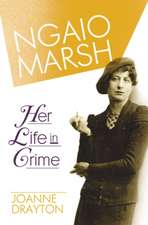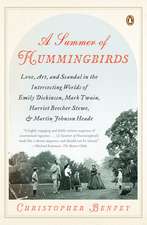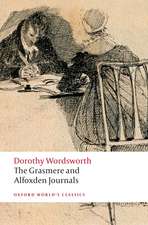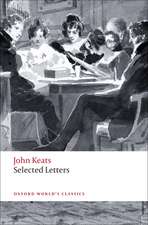Thurberville
Autor Bob Hunteren Limba Engleză Paperback – 27 apr 2017
James Thurber’s Columbus was not today’s Columbus—or even yesterday’s. It was a Columbus he both knew and created, a place perched on the fringe of reality and the fringe of his imagination. It is the place Bob Hunter revisits in Thurberville, a book where the author separates truth from fiction and identifies what parts of the famous humorist’s hometown of 180,000 exist in the burgeoning metro area of more than two million today.
Thurber’s Columbus was a wild and crazy place, a city full of fascinating and sometimes peculiar characters, many in his own family. Because of the widespread popularity of his stories, that was also the Columbus that many of his readers around the world came to know.
Thurberville chronicles those characters and explores that world. But it also examines the real city where Thurber struggled and then blossomed as a college student, worked as a newspaper reporter and a press agent, and achieved international fame as a humorist and cartoonist after he left town, in part by writing about the subjects he left behind.
Much of Thurber’s best work was cultivated by experiences Thurber had in Columbus and in his dealings with family, friends, teachers, and acquaintances there. They are worth a revisit and, in some cases, an introduction.
Thurber’s Columbus was a wild and crazy place, a city full of fascinating and sometimes peculiar characters, many in his own family. Because of the widespread popularity of his stories, that was also the Columbus that many of his readers around the world came to know.
Thurberville chronicles those characters and explores that world. But it also examines the real city where Thurber struggled and then blossomed as a college student, worked as a newspaper reporter and a press agent, and achieved international fame as a humorist and cartoonist after he left town, in part by writing about the subjects he left behind.
Much of Thurber’s best work was cultivated by experiences Thurber had in Columbus and in his dealings with family, friends, teachers, and acquaintances there. They are worth a revisit and, in some cases, an introduction.
Preț: 148.01 lei
Nou
Puncte Express: 222
Preț estimativ în valută:
28.32€ • 29.65$ • 23.43£
28.32€ • 29.65$ • 23.43£
Carte disponibilă
Livrare economică 17-31 martie
Preluare comenzi: 021 569.72.76
Specificații
ISBN-13: 9780814254035
ISBN-10: 0814254039
Pagini: 344
Dimensiuni: 152 x 229 x 25 mm
Greutate: 0.59 kg
Ediția:1
Editura: Ohio State University Press
Colecția Trillium
ISBN-10: 0814254039
Pagini: 344
Dimensiuni: 152 x 229 x 25 mm
Greutate: 0.59 kg
Ediția:1
Editura: Ohio State University Press
Colecția Trillium
Recenzii
“The physical traces of Thurber’s Columbus are mostly gone, but they remain immortalized in Thurber’s prose, and, now, in Hunter’s meticulous account.” —Publishers Weekly
“I can’t think of a better or more enjoyable way to experience Columbus’s past than through the quirky characters, streetscapes, and landmarks—some long vanished—of Thurberville. Bob Hunter’s new book provides renewed appreciation for the wit, intelligence, and humor of our city’s most acclaimed literary son. A lot of Columbus always remained in Thurber. And though the city has since undergone a vast transformation, I was pleased to discover that a lot of Thurber remains in Columbus.” —Brian Ross, CTA, President and CEO, Experience Columbus
Notă biografică
Bob Hunter is a sports columnist at The Columbus Dispatch and author of Saint Woody: The History and Fanaticism of Ohio State Football and A Historical Guidebook to Old Columbus.
Extras
Columbus as Thurberville
James Thurber’s Columbus wasn’t today’s Columbus or even yesterday’s. It was a Columbus he both knew and created, a place perched on the fringe of reality and the fringe of his imagination.
The Columbus he called home until his late twenties set the standard for average, a medium-sized city in the middle of America that probably veered toward the center of just about any kind of ranking in which it found itself. It sat near the geographic center of Ohio, which helped make it the state capital. It sat in the midst of miles of flat farmland, which helped make it a model of Midwestern monotony. It featured a state university that an average student could navigate and two small rivers that converged into one moderately sized river that average boats couldn’t. It had a minor league baseball team, a minor league horse track, and, despite some major league attributes, a minor league mentality.
It also had Thurber, a chance occurrence destined to introduce a spectacularly average place to the world as the wacky, panties-on-his-head, joke-cracking life of every party. His Columbus is a wild and crazy place, a city full of peculiar characters, bizarre incidents, and unexpected events. There’s a ghost in Thurber’s house. Uncle Zenas dies of elm tree blight. Aunt Sarah Shoaf piles all of her valuables outside her bedroom door every night with a note advising would-be burglars to “take it, this is all I have.” The city flees in terror over a rumor that the dam has broken. His grandfather still thinks he is fighting the Civil War. Sullivant Elementary is overrun by old students with muscles and moustaches. A servant mistakes Thurber’s father for the Antichrist and comes after him while waving a bread knife.
The world came to know Thurber’s Columbus and love it like an eccentric family member. The world became acquainted with his characters and never let go of them. It was the only Columbus many knew, and they became attached to it, regardless of how much or how little of it was real.
Playwright and screenwriter Donald Ogden Stewart grew up in the same Columbus Thurber did; he was nine days older. When he moved overseas in the 1950s to escape the arts-suspicious, Commie hunters of Senator Joseph McCarthy, he was surprised to find that people knew his hometown. “When I first came to live in London, I was amazed at the number of Englishmen who said ‘Oh, yes, Columbus, of course. I know it very well, from Thurber’s books, you know.’”
But they didn’t know Columbus as well as they knew Thurber’s Columbus, which could be both different and the same. When Thurber wrote about the Get Ready Man, “a lank, unkempt, elderly gentleman with wild eyes and a deep voice who used to go about shouting at people through a megaphone to prepare for the end of the world,” his subject was a living human who had caught the writer’s attention and had taken residence in his mind. But whether the Get Ready Man interrupted Mantell’s production of King Lear at the Colonial Theatre in the comic way Thurber described, stopping the performance with wails of “Get rea-dy!” and “The Worr-uld is coming to an end!” is anyone’s guess.
James Thurber’s Columbus wasn’t today’s Columbus or even yesterday’s. It was a Columbus he both knew and created, a place perched on the fringe of reality and the fringe of his imagination.
The Columbus he called home until his late twenties set the standard for average, a medium-sized city in the middle of America that probably veered toward the center of just about any kind of ranking in which it found itself. It sat near the geographic center of Ohio, which helped make it the state capital. It sat in the midst of miles of flat farmland, which helped make it a model of Midwestern monotony. It featured a state university that an average student could navigate and two small rivers that converged into one moderately sized river that average boats couldn’t. It had a minor league baseball team, a minor league horse track, and, despite some major league attributes, a minor league mentality.
It also had Thurber, a chance occurrence destined to introduce a spectacularly average place to the world as the wacky, panties-on-his-head, joke-cracking life of every party. His Columbus is a wild and crazy place, a city full of peculiar characters, bizarre incidents, and unexpected events. There’s a ghost in Thurber’s house. Uncle Zenas dies of elm tree blight. Aunt Sarah Shoaf piles all of her valuables outside her bedroom door every night with a note advising would-be burglars to “take it, this is all I have.” The city flees in terror over a rumor that the dam has broken. His grandfather still thinks he is fighting the Civil War. Sullivant Elementary is overrun by old students with muscles and moustaches. A servant mistakes Thurber’s father for the Antichrist and comes after him while waving a bread knife.
The world came to know Thurber’s Columbus and love it like an eccentric family member. The world became acquainted with his characters and never let go of them. It was the only Columbus many knew, and they became attached to it, regardless of how much or how little of it was real.
Playwright and screenwriter Donald Ogden Stewart grew up in the same Columbus Thurber did; he was nine days older. When he moved overseas in the 1950s to escape the arts-suspicious, Commie hunters of Senator Joseph McCarthy, he was surprised to find that people knew his hometown. “When I first came to live in London, I was amazed at the number of Englishmen who said ‘Oh, yes, Columbus, of course. I know it very well, from Thurber’s books, you know.’”
But they didn’t know Columbus as well as they knew Thurber’s Columbus, which could be both different and the same. When Thurber wrote about the Get Ready Man, “a lank, unkempt, elderly gentleman with wild eyes and a deep voice who used to go about shouting at people through a megaphone to prepare for the end of the world,” his subject was a living human who had caught the writer’s attention and had taken residence in his mind. But whether the Get Ready Man interrupted Mantell’s production of King Lear at the Colonial Theatre in the comic way Thurber described, stopping the performance with wails of “Get rea-dy!” and “The Worr-uld is coming to an end!” is anyone’s guess.








